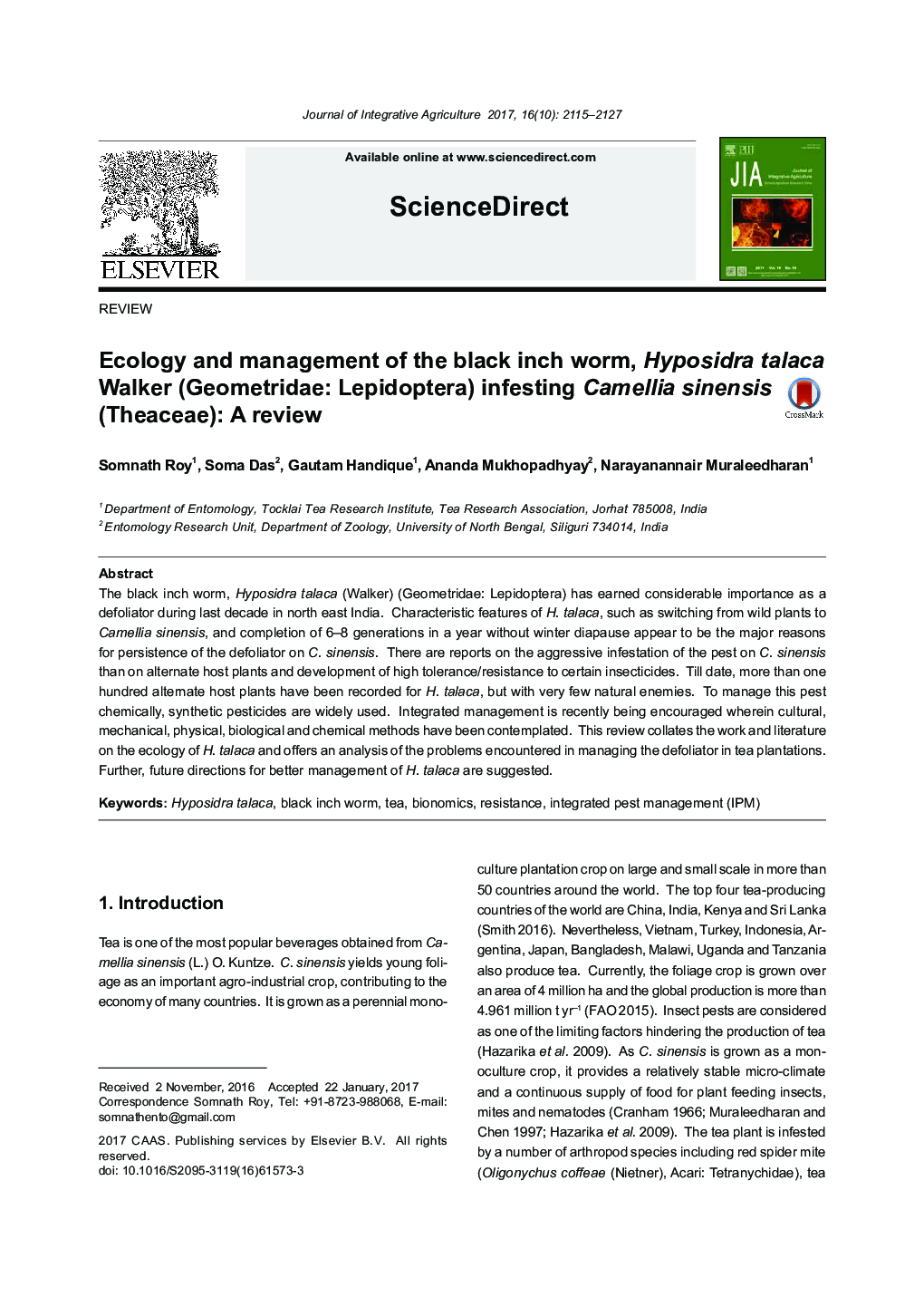| کد مقاله | کد نشریه | سال انتشار | مقاله انگلیسی | نسخه تمام متن |
|---|---|---|---|---|
| 8875825 | 1623704 | 2017 | 13 صفحه PDF | دانلود رایگان |
عنوان انگلیسی مقاله ISI
Ecology and management of the black inch worm, Hyposidra talaca Walker (Geometridae: Lepidoptera) infesting Camellia sinensis (Theaceae): A review
دانلود مقاله + سفارش ترجمه
دانلود مقاله ISI انگلیسی
رایگان برای ایرانیان
کلمات کلیدی
موضوعات مرتبط
علوم زیستی و بیوفناوری
علوم کشاورزی و بیولوژیک
علوم کشاورزی و بیولوژیک (عمومی)
پیش نمایش صفحه اول مقاله

چکیده انگلیسی
The black inch worm, Hyposidra talaca (Walker) (Geometridae: Lepidoptera) has earned considerable importance as a defoliator during last decade in north east India. Characteristic features of H. talaca, such as switching from wild plants to Camellia sinensis, and completion of 6-8 generations in a year without winter diapause appear to be the major reasons for persistence of the defoliator on C. sinensis. There are reports on the aggressive infestation of the pest on C. sinensis than on alternate host plants and development of high tolerance/resistance to certain insecticides. Till date, more than one hundred alternate host plants have been recorded for H. talaca, but with very few natural enemies. To manage this pest chemically, synthetic pesticides are widely used. Integrated management is recently being encouraged wherein cultural, mechanical, physical, biological and chemical methods have been contemplated. This review collates the work and literature on the ecology of H. talaca and offers an analysis of the problems encountered in managing the defoliator in tea plantations. Further, future directions for better management of H. talaca are suggested.
ناشر
Database: Elsevier - ScienceDirect (ساینس دایرکت)
Journal: Journal of Integrative Agriculture - Volume 16, Issue 10, October 2017, Pages 2115-2127
Journal: Journal of Integrative Agriculture - Volume 16, Issue 10, October 2017, Pages 2115-2127
نویسندگان
Somnath Roy, Soma Das, Gautam Handique, Ananda Mukhopadhyay, Narayanannair Muraleedharan,